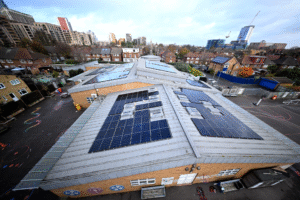Fertilisers are a big contributor to greenhouse gas emissions, but researchers from the University of Cambridge say this could be reduced by up to 80% by 2050.
The study is the first to calculate the carbon footprint for the full life cycle of nitrogen fertilisers, with results showing that they emit 2.6 gigatonnes of carbon each year – more than global aviation and shipping combined.
However, this can be effectively curbed, while maintaining food security, through scalable technological and policy solutions which could reduce fertiliser emissions by as much as 80%.
‘In order to reduce emissions, it’s important for us to identify and prioritise any interventions we can make to make fertilisers less harmful to the environment,’ said Dr André Cabrera Serrenho from Cambridge’s Department of Engineering. ‘But if we’re going to do that, we first need to have a clear picture of the whole lifecycle of these products. It sounds obvious, but we actually know very little about these things.’
Serrenho and co-author Yunhu Gao mapped the global flows of manure and synthetic fertilisers and their emissions in 2019 to get a more accurate picture of the total impact of the industry.
They tracked the emissions throughout the lifecycle, including production and consumption, and regional emissions across nine world regions.
‘It was surprising that this was the major source of emissions,’ added Serrenho. ‘But only after quantifying all emissions, at every point of the lifecycle, can we then start looking at different mitigation methods to reduce emissions without a loss of productivity.’
Researchers then measured the estimated maximum impact of various mitigation methods. As most emissions from synthetic fertiliser production come chemical reactions to create ammonia, decarbonising heating and hydrogen production could be the most effective solution.
The scientists also suggested that nitrification inhibitors could be mixed in with fertilisers to prevent bacteria from forming nitrous oxide, a greenhouse gas and air pollutant.
However, the single most effective mitigation method is to reduce the amount of fertiliser we use – replacing some of the fertilisers with the highest emissions, such as urea, with ammonium nitrate would reduce global emissions by 20-30%.
‘We’re incredibly inefficient in our use of fertilisers,’ explained Serrenho. ‘We’re using far more than we need, which is economically inefficient and that’s down to farming practices. If we used fertiliser more efficiently, we would need substantially less fertiliser, which would reduce emissions without affecting crop productivity.
‘There are no perfect solutions. We need to rethink how we produce food, and what sorts of economic incentives work best. Perhaps that means paying farmers to produce fewer emissions, perhaps that means paying more for food. We need to find the right mix of financial, technological and policy solutions to reduce emissions while keeping the world fed.’
Photo by James Baltz















